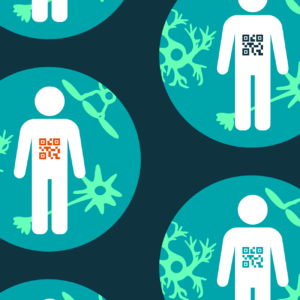Human Disease Models
Systasy offers unique access to a repository of biospecimens from deeply characterized patients with disorders, enabling advanced patient-derived disease models.
Systasy’s reproducible iPSC-based disease models mimic the complexity of human biology to an unprecedented degree. They provide an attractive platform for target discovery, drug discovery and development. Combined with Systasy’s barcode-assisted phenogenomic screening approach and complementary AI-driven predictions, we aim to increase the success rate in drug discovery significantly and revolutionize the way mental disorders can be treated.
We have exclusive access to fully characterized patient cohorts with mental disorders and can generate iPSC-based disease models in 2D and 3D cell culture.
Well characterized clinical diseases cases
Our network of clinical experts provides Systasy with patient stem cells from well characterized disease cases, including genetic, MRI, and clinical assessment data.
We can differentiate these patient-derived or healthy donor-derived stem cells into excitatory or inhibitory neurons, sensory neurons, or oligodendrocytes.
Improve therapeutic insights
Systasy uses patient stem cells to create disease relevant iPSC cells and employs DNA-barcoding to gather large information sets: on patient level, cellular level, and pathway level in a single experiment.
Stem cell-based disease modeling services
Systasy´s insights into all disease-affected pathways enables successful drug discovery
Our assay services include
- Pathway-based drug discovery
- mapping disease pathways
- pathway-based target identification
- pathway-based compound screening
- Patient group stratification
- Functional assays with patient-derived iPSCs: transcriptomics: bulk & single cell RNA-sequencing
Innovation is part of our DNA!
Ready to take your research to the next level? Contact us today to learn more about our services, pricing, and how we can help you achieve your scientific goals.
Ready to take your research to the next level? Contact us today to learn more about our services, pricing, and how we can help you achieve your scientific goals.

